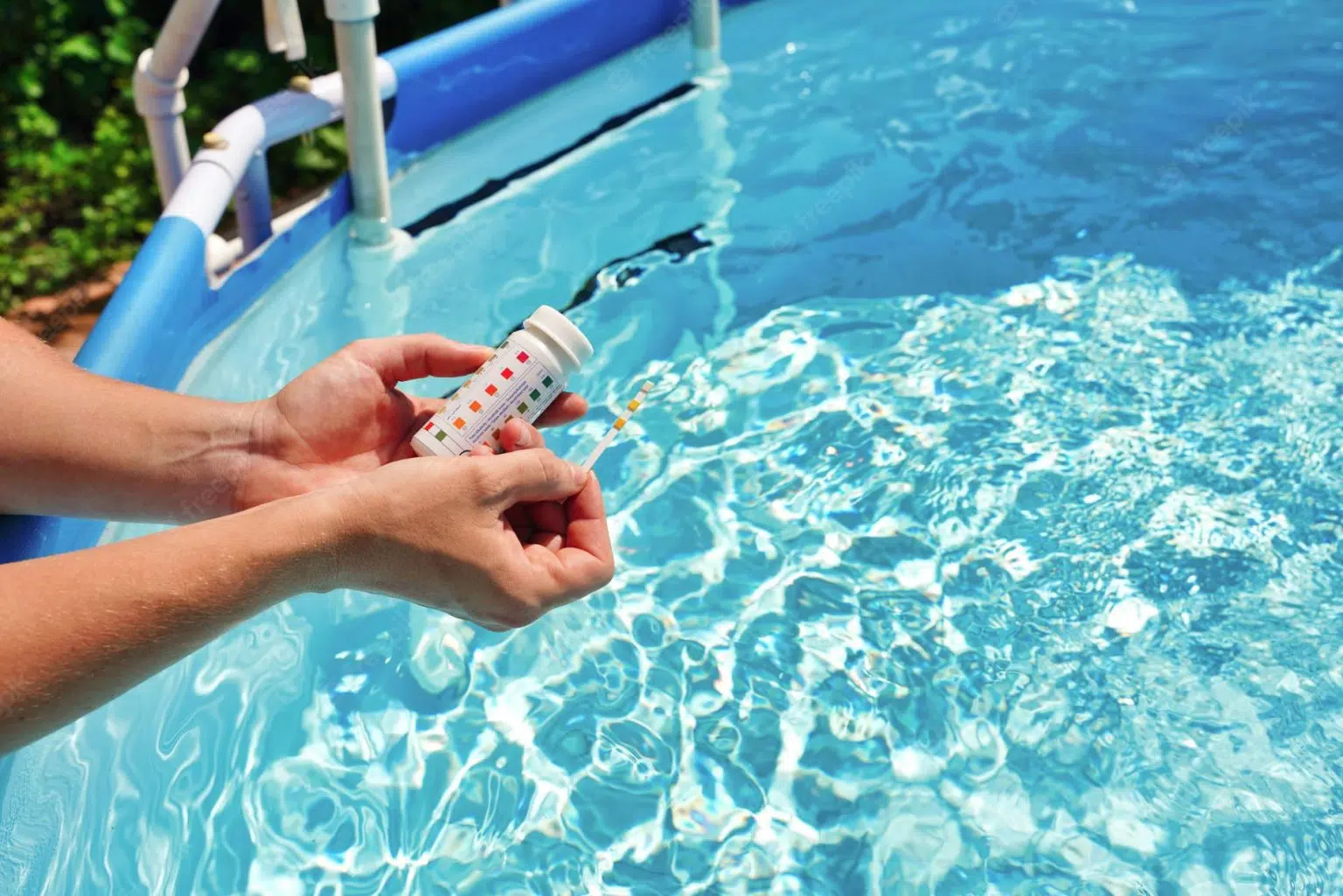When it comes to maintaining a clean, clear, and safe pool, the two critical elements you cannot overlook are water chemistry and the pool system itself. One of the most efficient systems to consider for your pool is a saltwater pool, which has gained significant popularity due to its many advantages. However, no matter the type of pool you own, performing a pool water chemistry analysis is essential for keeping the water balanced and your swimming environment safe.

The Importance of Pool Water Chemistry Analysis
Pool water chemistry is the foundation of a healthy pool environment. Regularly analyzing the water ensures that the chemical balance is maintained, preventing issues like cloudy water, scaling, and the growth of harmful bacteria or algae. By regularly testing the water’s pH, alkalinity, calcium hardness, and chlorine levels, you can extend the life of your pool and its equipment while ensuring the water remains inviting.
A proper pool water chemistry analysis typically focuses on:
- pH Balance: Ideal pH levels should range between 7.2 and 7.8. If the pH is too high or low, it can lead to skin irritation or damage pool equipment.
- Alkalinity: The total alkalinity helps to stabilize pH levels. Keeping it in the 80-120 ppm range is vital.
- Calcium Hardness: Proper calcium levels (200-400 ppm) help prevent scaling on surfaces and equipment.
- Chlorine Levels: Keeping chlorine between 1-3 ppm ensures the water remains disinfected and free of bacteria or algae.
With accurate and consistent testing, you’ll know exactly how to adjust the chemicals to achieve a balanced pool, leading to better water quality and a more enjoyable swim.
The Rise of Saltwater Pool Systems
Saltwater pool systems have revolutionized pool maintenance, offering a more comfortable swimming experience and reducing the need for harsh chemicals. Instead of relying on traditional chlorine tablets, saltwater pools use a salt chlorinator system that generates chlorine from the salt in the water, making it gentler on the skin, eyes, and hair.
Benefits of Saltwater Pools:
- Less Maintenance: Saltwater systems produce their own chlorine, reducing the need to constantly buy and store chlorine chemicals. It’s a more cost-effective solution in the long run.
- Gentler Water: Since saltwater pools have lower chlorine levels than traditional pools, the water is less harsh, preventing skin irritation and eye redness.
- Environmentally Friendly: With salt being a natural disinfectant, it’s a more eco-friendly option that doesn’t involve chemical run-off or excess plastic packaging.
- Consistent Chlorine Levels: The saltwater system generates chlorine consistently, maintaining balanced levels without the fluctuations that can occur with manually adding chlorine.
Combining Saltwater Systems with Pool Water Chemistry Analysis
Although saltwater pool systems require less maintenance in terms of chemical additives, they still need regular monitoring. The production of chlorine in saltwater pools is controlled by the system’s chlorinator, but it’s essential to keep an eye on the water’s chemistry to prevent any imbalances, such as overly high or low salt content, which can affect the system’s efficiency.
When conducting a pool water chemistry analysis for saltwater pools, keep these specific considerations in mind:
- Salt Levels: A saltwater pool should have salt levels between 2700 and 3400 ppm. Regular testing ensures that your pool’s salt level is optimal for chlorine production.
- Chlorine Production: Ensure the salt system is generating the correct amount of chlorine. If chlorine levels are too low, the pool can become a breeding ground for bacteria or algae.
- pH and Alkalinity: Saltwater pools still require attention to pH and alkalinity levels. A high pH can cause scaling on the salt chlorinator, reducing its efficiency. Proper balancing ensures smooth operation.
By performing routine pool water chemistry analysis and maintaining your saltwater pool system, you can enjoy a cleaner, more comfortable swimming experience all year long.
Conclusion
Maintaining a perfect balance between water chemistry and system efficiency is the key to a well-functioning pool, whether you have a traditional chlorine-based system or a modern saltwater pool. Regular pool water chemistry analysis is essential for ensuring that your water remains safe and inviting, while the right saltwater pool system will make maintenance easier and more cost-effective. For a pool that runs smoothly and stays crystal clear, invest in both regular water testing and a quality saltwater pool system—your pool, and your swimmers, will thank you!
For more expert advice and to explore the best solutions for your pool, visit Pelican Pools. Let’s help you create the perfect swimming environment for your family.









